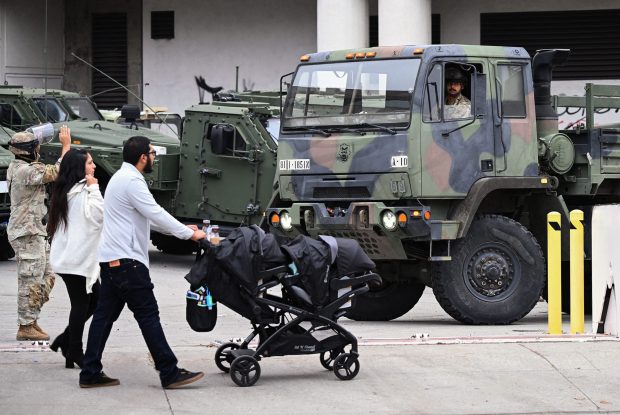The apparent demise of Bring Chicago Home, one of Mayor Brandon Johnson’s signature initiatives, is a stinging setback for a mayor who’s seen quite a few already in a term that has yet to hit the one-year mark.
The referendum’s expected defeat (we await the counting of mail-in ballots unlikely to change the outcome) surely was a pleasant surprise to those in the real estate industry, many of whom privately believed they’d likely lose at the ballot box after failing to get the vote nullified in court. This page agreed with critics who expressed the desire to do more to house those on the streets in our city but not via a quadrupling of the one-time tax paid on the sale and purchase of much commercial and multifamily property at a time when downtown buildings are selling at losses and higher costs on apartment owners are just get passed along to renters.
The industry voices we heard didn’t gloat after voters nixed the idea. To their credit, they offered to brainstorm with policymakers to address the problem, which at its root is the dearth of affordable housing in Chicago. “We want to work with the city to find real solutions that benefit neighborhood housing and grow Chicago’s supply of naturally occurring affordable housing,” said Michael Glasser, president of the Neighborhood Building Owners Alliance.
We wish we could say the same about the activists and other supporters of Bring Chicago Home, who generally reacted by pinning the blame on opponents’ efforts to defeat the measure rather than acknowledging the obvious problem. The public didn’t trust this mayor, who’s struggling badly to convince even those sympathetic to his views that he’s up to the job, with what appeared to be a blank check. There was no plan of any detailed kind provided for how to spend the estimated $100 million a year this tax would generate, beyond the vague assurance that it would go toward alleviating homelessness.
After they finish licking their wounds, the mayor and reasonable City Council backers of Bring Chicago Home, like the vice mayor, Ald. Walter Burnett, 27th, ought to jump at the offer of Glasser and others in his orbit. Mental health treatment, job training and other such services are surely needed to help those without a roof over their heads. (One piece of good news Tuesday for those who fight on behalf of the Chicago homeless was the provision of several, locally targeted seven-figure grants from mega philanthropist MacKenzie Scott, some of which targeted those who work in the sector.)
Still, a real solution to the underlying problem lies mostly in getting more housing built.
That much isn’t complicated. What is more difficult is pulling the many policy levers necessary to achieve that goal. Those include zoning and permitting reform, financing help from the public sector, tax incentives and more willingness by aldermen to allow greater densities and mixed-income housing in their wards. Such efforts often are thankless and even tedious — and don’t appear as splashy as “soak the rich” solutions like BCH — but it’s the tough work of true governance.
A wise politician would mount a listening campaign after such a rebuke from voters and seek out the opinions of those who know how to get housing built and what the impediments are to doing so. These include nonprofit developers as well as the private sector.
On a national scale, we’ve seen politicians recover from humiliating defeats before. The recipe typically includes some measure of humility. Bill Clinton in his first term as president lost the House of Representatives to the Republicans after decades of Democratic control and looked everything like a one-termer. He pivoted, made some true concessions to his foes, and we know the rest of that story.
No one disagrees that homelessness — and the lack of affordable housing — is an urgent problem. Chicago voters have instructed the mayor to get more pragmatic and specific about how to address it. Will he?



